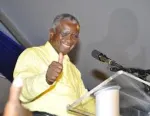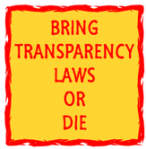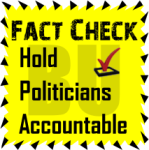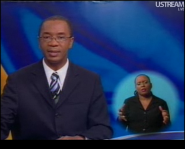Submitted by Terence Blackett
In 1940/1, the German Luftwaffe bombed in the first of the big air raids on London the industrial areas and docklands mainly, in the East End of London. The city went up in smoke. Since Saturday night, August 5th rioting, looting and arson across many boroughs of London has brought the city to brink of another blitz. For [3] nights in a row, London has been burning as arsonists, anarchists and agitators loot, ransack and destroy homes and property in a systematic wave of violence and provocation.
Prime Minister David Cameron cut short his Tuscany holiday to return to Britain this morning to chair in the war room the COBRA* Emergency Committee meeting to devise a strategy to deal with what the news media are calling another BLITZ.
But is it little too late to curb the subterrrean social seismology which is affecting British High Streets as roving pacts of youths and vigilantes battle in an effort to wreak mayhem, havoc, social discord and to bring about environmental dilapidation?
What are the real systemic issues which has now shocked a country into asking why?
In this brief discourse, let us address some of the causal ramifications which have led Britain to this place and how the structural issues which exist have not been adequately dealt with.
In the past, riots in the 1980’s have flared and simmered but with precious little changing the subliminal undertones and the root symptomology of why Blacks and other people of colour riot and loot – burning their communities virtually to the ground.
Elliott Currie’s in – “Reflections on Crime and Criminology at the Millennium.” cited in Western Criminology Review 2(1) argues that in the last few years we’ve seen the emergence of a new kind of triumphalism about crime, and the capacity of the criminal justice system to control it. You don’t see this so much among criminologists, or among practitioners who actually work in the trenches of the justice system every day. But you see it, in spades, among pundits and politicians and in the media.
This new triumphalism about crime is connected to the broader triumphalism – even smugness – about the “British Model” generally. There is a sense that we’ve got it “fixed” here in the UK – that we possess the secret of how to organize our economy and society successfully, and that everyone else in the world ought to learn to do things the way we do. When it comes to the economy, our secret is usually said to be things like a “flexible” labour market, a welfare state, a willingness to deregulate economic life whenever and wherever we can.
In the triumphalist view about crime, the secret of our supposed success is variously said to be our “tough”, robust policing strategies -“zero tolerance,” “quality of life” – and/or that our enormous investment in incarceration is finally paying off in a big way. And as a result we are now sometimes compared favourably to other countries that, unlike us, still have crime.
The lesson we’re supposed to ingest from all of this “success” on the crime front is that it’s ok now: after years and years of doing it wrong, we’re finally doing it right. And the even deeper implication is that we’ve now proven that we can indeed control crime through the criminal justice system alone. The flip side of that being that we’ve also proven that you don’t, after all, need to address such problems as poverty or social exclusion or other supposed “root causes” of violent crime.
Sadly, there is no significant national-level political debate on the most critical issues of criminal justice policy today – the swelling of the correctional complex, the massive overrepresentation of Blacks in the justice system, the chronic revelations of terrible abuses in our prisons, jails, and juvenile facilities, or the increasing use of the penal system as a substitute for more constructive approaches to the structural social ills of British society.
Home Truth Number (1) – is that despite the declines in violent crime since the early nineties, we remain a far more violent place than the rest of the advanced industrial world. That particular home truth gets obscured for a variety of reasons; partly because in our public discourse about social problems we very rarely look anywhere else in the world for a basic reality check on our own condition (that’s especially rare in the mass media); and partly because of some rather misleading empirical claims that have been made about the level of crime in other industrial societies.
Home Truth Number (2) – an estimated 15% of all offences against Asians and Blacks during 1995 and onward was seen as racially motivated, compared to 1% against whites.
Home Truth Number (3) – 83% of cases of racially motivated crimes prosecuted in 1997/8 resulted in convictions. However, sentences were in only 22% of cases where the racial element had been brought the court’s notice.
Home Truth Number (4) – racism remains in the Police, and the Criminal Justice System where one death is a death too many. The institutional racism which inheres in the criminal justice system – the police, the prisons and the special mental hospitals – is reflected in the number of Black people who die in the custody of the authorities. The Institute for Race Relations has been recording Black deaths in custody since the death of David Oluwale in Leeds since 1969. In 1991 a report was published on Black deaths in custody, entitled ‘Deadly Silence’ by A. Sivanandnan. To add insult to injury, disproportionate stop & search of Blacks in London continues to be a major racist but structural problem.
Racism is indeed endemic in Britain, and it is important to recognize institutional racism as a cause of social disharmony and economic in-opportunity. However, focusing on racism may act as a smokescreen that undermines our ability to address the underlying issues of poverty and the underclass. Also concentrating solely on policy programs dealing with racial bias make it difficult for Blacks to recognize how their fortune is inextricably connected with the structure and functioning of modern British economy.
These structural changes in the economy, in demographics, and in family and household structure account for some of the differential between Blacks and whites, but they do not account for all, the differential. Several studies show that racial discrimination in employment, housing and other areas continue to undermine the progress of Blacks, people of colour and poor whites. New government cuts, Black unemployment and social inner-city bottle-necking add to the myriad of tensions which have now spilled on to the streets of Britain.
Sociologist William Julius Wilson popularized this notion of “the underclass” by arguing that the much mentioned structural forces changing the economy also contributed to a decline in manufacturing and the movement of blue-collar jobs to the suburbs (and to other Asian countries), eliminating a source of relatively, well-paying, secure jobs for Blacks. As a consequence, unemployment increased for urban Blacks, for whom it became more difficult to form and maintain family units, quality lives and a legacy of real community.
Ideological change, like charity, must begin at home. Many of the inherent ills that plague people of colour – some are of our own making, caused by the social conditioning of marginalization, and disenfranchisement. Yet failure cannot be an option.
The fundamental issue at stake here is not slavery, bigotry or racism but what are at stake are the national fabric, conscious and heart of Britain and even the wider Black Diaspora. The shared belief that ‘all men are created equal’ – must be more than just empty words but there is clear evidence that the issue of race has been a divisive tool used to divide and conquer.
Government policies should be designed to move us all towards a more fair and just society where the strengths of multi-culture is applauded and not denigrated. For truly, if we cannot respect the uniqueness of other people’s appearance and the differences inherent in the cultural makeup of any great metropolis, then how in the world are we going to respect and be able to deal effectively with the citizens of other nations.
The mark of the postmodern world is the imagination of its profiteers and the counter-assertiveness of the oppressed. Exploitation and the refusal to accept exploitation as either inevitable or just constitute the continuing antimony of the postmodern era, joined together in a dialectic which has far from reached its climax in the 20th century (Wallerstein 1974:357)
Media manipulation had emerged in 20th century consumer capitalism, using subtle advertising as a crucial component of a dual challenge to the corporate sector to manage consumer demand and diminish working class radicalism. Through radio and television, advertising has been able to allow corporations to gain control of mass culture and the entertainment industries (Kellner 1990).
These culture industries have come to dominate and colonise the ‘public spheres’ of our lives to such an extent that rational citizens no longer find time to discuss political and social issues but have become atomised consumers who passively view the spectacles of mass culture in the private spaces of their homes. In this way, the space of potential political opposition was filled with sounds of popular music and the sights of stars and celebrities acting out the ideological scenarios of the culture industries (Adorno & Horkheimer 1972).
The two broad theories of how power work or is distributed in societies, the first suggest that power in the UK resides with its citizens (one person – one vote), or in the groups where citizens belong. This is called the pluralist view. Pluralists argue that power is distributed around society through representatives who act on behalf of others or other groups, and are controlled in expressing the wishes of the groups involved. Criticisms of this theory suggest that people at the top mislead the British public, which means that people with greater information have more power. Appointed positions wield considerable power, more than just a vote, and that campaign financing leaves politicians indebted to contributors not to everyone as is assumed. (Domhoff 1967)
The other point of view is the elitist view or conflict view. The argument is that in reality, power is concentrated in the hands of a few, a very small group of people (an elite) who manipulate the masses through control of the media, visible government leaders, with a right wing conspiracy version which argues that the elitist ideology is subversive, anti-capitalist, anti-individualist, anti-patriotic, pro-welfare, and pro-one world government, with the sole aim of undermining traditional Magna Carta values.
The “Power Elite” (made popular by C.W. Mills) argue that the corporate, executive and military run the government elite. Mills suggest that the three components of the elitist structure are more or less equal in power, with the corporate elite becoming a little stronger in recent years. (C .Wright Mills 1956) Criticisms of this theory ask the following questions:
Are there conflicts between the elite groups and are the elites really equal in power? Are there issues not under the influence of these groups or issues they don’t care about? And are politicians really puppets of these groups? And, what we are seeing on the streets of London is it a “REVOLT” against these established structures?
“If a ruling class hypothesis says anything, surely it asserts that within some specific political system there exist a group of people who to some degree exercise power or influence over other actors in the system”. (Dahl 1957)
Within British society there is an upper-class that gets more than its fair share of wealth, income and power. Its membership in controlling institutions and key decision making groups gives it disproportionate influence. It is broader based than Mills power elite and it influences, but it does not control the legislature. It exercises control by financing candidates, its control of parties, its control of investments, and by being appointed to government positions. (Dumhoff 1968)
The current government has some [2] dozen millionaires in positions of political authority which detaches them from the reality of everyday life of the average Black Brit and working class Britons.
As the 4th night of looting, rioting and anarchy looms precariously on the horizon – 16,000 police are being deployed on the streets of London and other cities which include Birmingham, Liverpool, Nottingham, Bristol and possibly others, while we await the sobering image on our television screens as the sun depletes on the edges of the Scottish horizon.
The government have been given a key opportunity to listen to community leaders, sociologists and others who are on the frontlines of social fragmentation and breakdown – to implement strategies which will bring about greater distribution of wealth and to create a more inclusive society.
Sadly, the “dark forces” at work thrive on and relish social anarchy as a means of furthering their stated aims and goals!!!



















Here we go again!
Hi David
Every since.
White is black and black is white. All races are one, despite what everyone seems to think in the last few centuries. Enjoy Charles Knighton’s submission on the other thread, but don’t think too many got the gist.
@Send free things
You are stating the obvious but then we have to factor the politics of life and the challenges which it brings.
In fact this is where we now find ourselves.
Starkey is obviously being racist. If he had posited that Jamaican gang culture had become fashionable among the lower classes in the big British Cities he may have had a minor point. I would like to ask him if it was black people behind the many years of soccer hooliganism, ignorant behaviour in the East End etc
nowadays when you go to a protest march in uk or notting hill carnival there are teams of police taking pictures of the crowds.. (computers have facial recognition software)
if anyone commits a crime the police don’t intervene … they analyze the film and catch you later
there are cameras all over in the streets, shopping centres, parks, underground, offices, job centres, night clubs, lifts, car parks etc
if being black means being poor / cantankerous / into R&B
then whiteys are ‘becoming black’ through black influences
if whitey mixed with ‘blacks’ instead of superficial patronizing liberal lip service they’d realize ‘blacks’ can be nice / normal human beings and might possess a mind, instead of assuming superiority / privilege in all forms of human interaction
Heard the latest . COLONEL GADDAFFI recognises the rioters in UK as the legitimate representatives of the people!!
Peace
Hey Lemuel,
Let me stress that when I said “waiting for youths in Barbados to do similar” I by no means whatsoever meant “hoping or wishing for.” And maybe it is a stretch, I don’t know – different culture and society here I suppose.
I guess what I really meant to say was look for the signs from early on, be aware and nip them in the bud.
Remember, we didn’t expect two youths to set fire to a store in Bridgetown and kill six people the way they did last year. Nor did we expect an entire community in St. James to wake up to slashed tires one morning.
I’m just saying we should look at this UK episode as a cautionary tale. In many ways Bim is regressing, and there are quite a few discontented and volatile youths here with nothing positive or meaningful to do with themselves. These things can start small – with lots of little signs that if go unchecked, can build into something greater over the years.
any place where you’ve got a rich and a poor underclass during times of economical recession or hardship can be potential ticking time bombs
Is this how wunna treatin de ole people?
http://www.nationnews.com/articles/view/elderly-living-in-fear/
@KIKI
You are right about the supposedly liberal whites who never get to truly interact with black people. It can be difficult here in Toronto because of negative perceptions fostered by the Jamaican Gangs shooting at each other every few days. As a Bajan white guy it is easier for me because my black friends are old school pals who are successful in their endeavours.
But if I was Chinese, Indian etc from the East I might quickly conclude to stay away from those blacks. Sad but true.
The other problem from experience with far too many Jamaicans is that they are very racist and dont give whites a chance to become friends. I lived in a hostel in London in the 1970s with many racial groups and was obviously very friendly with the black peeps from the Cbean and Africa. However, when this Jamaican guy comes to the hostel he brings preconceived attitudes towards all whites, including myself, who has easily 5X the black friends than white. In my years in London I even had black friends from South Africa who were much easier to befriend than Jamaicans.( naturally at the time black Sth Africans had every right to distrust whites) Strange dat!
I must add that I did eventually meet a few Jamaicans that were somewhat normal!
You folks need to “Life at the Bottom” by Theodore Dalrymple and “Black rednecks and White Liberals” by Thomas Sowell.
British Historian David Starkley wasn’t wearing his Historian Hat when he stated that British white kids were becoming black. If he was speaking as a historian he would’ve had to admit that the “ganster culture” he refers to as Black culture isn’t authentic Black at all.
I refer to Thomas Sowell -whom Terrence tried to dismiss – author of black redneck and white liberals who said….urban “black” culture is really not African in origin, but comes from the now extinct culture of northern Britain. The folks who brought their culture with them from Scotland and environs tended to settle in the South, owned slaves, and became what we call Rednecks. The slaves took on the culture of their masters and this leads to the term Sowell uses in the title.
The title essay posits a “black redneck” culture inherited from the white redneck culture of the South and characterized by violent machismo, shiftlessness and disdain for schooling. White liberals, gangsta-rap aficionados and others, who lionize its ghetto remnants as an authentic black identity, Sowell contends, have their history wrong and help perpetuate cultural pathologies that hold blacks back.
So White British Kids are returning to their original culture, kept alive by blacks as remnants of Slavery. Wow what goes around really does come around. LOL!
@ terrence M Blackett:
“But good, ole DARCUS* has always been a JAMAICAN BATTLE AXE and we all know where he stands on the issues”
Darcus is a TRINIDADIAN